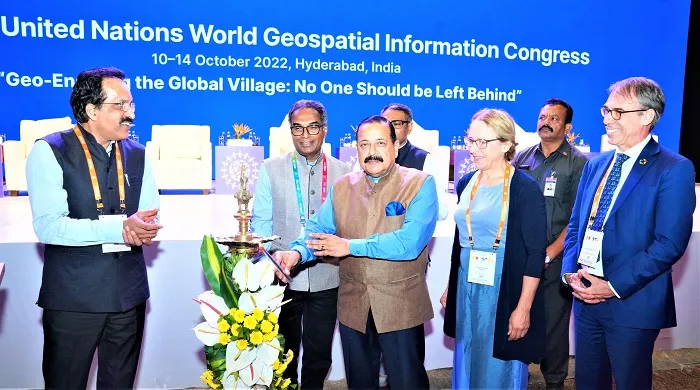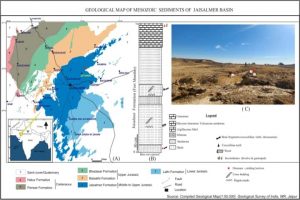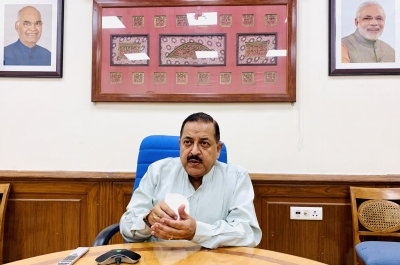India’s geospatial economy is expected to cross Rs 63,000 crore by 2025 at a growth rate of 12.8% and is expected to provide employment to more than 10 lakh people mainly through Geospatial Start-Ups.
This was stated here today by Union Minister for Science and Technology and Ministry of Earth Sciences, Dr Jitendra Singh while addressing the Second United Nations World Geospatial Information Congress (UN-WGIC) 2022 in Hyderabad today.
The 5-day conference is being attended by over 2,000 delegates including 700 plus international delegates and participants from about 150 countries. National Mapping Agencies (NMAs) like the Survey of India, senior officials, non-governmental organizations, academia, and industry are taking part in the Geospatial Congress.
Dr Jitendra Singh said, in the current boom of technology-led start-ups, there are around 250 geospatial start-ups in India and to give further boost to this sector, the minister unveiled a Geospatial Incubator today.
The Minister pointed out that national organizations like the Survey of India, Geological Survey of India, National Atlas and Thematic Mapping Organization (NATMO), Indian Space Research Organisation (ISRO), and National Informatics Centre implemented several GIS-based pilot projects across a range of domains like waste resource management, forestry, urban planning, etc. to demonstrate the applications of Geospatial Technology.
The Minister said, the government, industry, researchers, academia, and civil society are coming together to establish a quality geospatial ecosystem to build key solutions. He said the democratization of the Indian geospatial ecosystem will spur domestic innovation and enable Indian companies to compete in the global mapping ecosystem by leveraging modern geospatial technologies and realising the dream of “Atmanirbhar Bharat” or “Self-sufficient India” fully.
Dr Jitendra Singh emphasised that Geospatial technology and Geographic Information System (GIS) is going to make a significant impact in the way India has been adopting this technology and moving ahead.
Dr Jitendra Singh pointed out that the Rural Development Ministry has mapped over 45 lakh km of rural roads by using 21 data layers of the map, which has digitized information regarding water bodies, green areas, plots, and other structures essential for administrative purposes. He also informed that nearly 2.6 lakh gram panchayat had been covered by the ministry under the scheme of mapping and digitization. The Minister said, evolving technologies in the geospatial sector have brought about transformational changes whereby even an inch of a land in India can be mapped, thereby providing solid backups for Indian land reforms.
Addressing the Members of the United Nations Department of Economic and Social Affairs, the UN-GGIM Secretariat, International Delegates, and esteemed participants at Geospatial Congress, Dr Jitendra Singh pointed out that the Government of India released the new geospatial data guidelines in 2021, where it acknowledged the benefits of availability of comprehensive, highly accurate, granular and constantly updated representation of Geospatial Data in diverse sectors of the economy with the belief that it will significantly boost innovation in the country and greatly enhance the preparedness of the country for emergency response.
He said, to meet the growing needs of skilled geospatial manpower, several universities introduced Geospatial Science and Technology based courses to build human resource capacity and many research projects were taken up, to develop the availability of trained Geospatial manpower. He said, these measures have opened up the untapped opportunity to develop an international GIS services market for the Indian geospatial industry.
Also Read: Modi govt sanctions Rs 7,300 crore for big push to startups




















